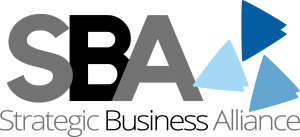Improving Cash Flow or “How to eat an elephant” Jul 13, 2013
In this blog, Graham Le Roux, owner of Constantia Management Group examines how professional practices can improve their cash flow.
In my view improving cash flow is like eating an elephant – do it a little bit at a time! Start with the easy bits! Before starting the Cash Flow Improvement project be sure to clarify your current status e.g. Debtor Days, Debtor Value, Debtor Aging, WIP Days, WIP Value and WIP Age, and what you would like these to be at the end of the project. Equally important is to record any process improvements and incorporate these in the system to improve the system forever.
In my experience we need to consider both internal and external elements impacting on cash flow
Internal Factors
The extent of your billing and whether or not this can be improved
Whether or not your selling price includes an appropriate margin
How intense or accurate your client engagement process is
How strong are your communication processes with your client
Whether or not the product or service has been appropriately delivered to the client
The strength of your relationship with the client – does the client respect you as much as you respect them
The effectiveness of your stock/ lock up management
Whether or not you are holding funds in trust for your client
The extent to which you are using discounting
External Factors
The economic environment in which you are operating
The ability of your clients to pay
The willingness of your client to pay
Whether or not your client has received an invoice or a statement
Whether or not your client respects you as much as you respect them
Steps to improving cash flow
1. Review your Credit Control policy for appropriateness, completeness and accuracy
2. Categorise debtors – focus on collecting the largest and oldest outstanding first,
3. by size and by age
4. Contact all large old debtors (using the script suggested below)
5. Categorise all WIP – focus on billing the largest oldest items first,
6. by size and by age
7. Review all large WIP (including disbursements) balances and
8. Bill all balances which meet billing criteria per the Credit Policy and Engagement Letters
Suggested script for Debtor follow up
A) “Good morning my name is Donald Collector from XYZ Legal Services I am calling you about the work we recently undertook on your behalf.”
B) “Can you tell me if the work we did was satisfactory in keeping with your instructions?”
C) “Have you received our invoice?”
If the client answers YES to the above a), b) or c) then say:
1. “Is there anything I can do to expedite payment?”
2. “Give assurances that you will do what has been agreed.”
3. “Can you confirm when the invoice will be paid?”
If the client answers NO to the above a), b) or c) then say:
1. “Is there anything you would like me to do to rectify the issue?”
2. “Give assurances that you will do what has been agreed.”
3. “Can you confirm when the invoice will be paid?”
The thrust of the above is to establish that the work was done, that the bills have been received and that therefore the bill is payable. You will notice that the script does not indicate that you should tell the client that the bill is unpaid.
Core message
Often cash flow can be improved by closer attention to managing working capital.
Manifesto
Examine all sources of cash, starting with the assets which are easiest to liquidate and rescheduling long term debt.
Quick steps
1. Check if there are monies in Trust which a client could authorise you to pay the debt
2. Meet largest debtors face to face and use the above scripts
3. Call the rest of the larger debtors using the above scripts
4. A partner/director calling a debtor will have more success than an employee calling.
5. Bill all billable WIP
Strategies
In the longer term you could consider some alternative options if your Partners or managers aren’t able to regularly carry out debt collection activities:
1. Consider “factoring your debts”
2. Outsource your debt collection activities
About The Blogger
Graham Le Roux is the owner of Constantia Management Group and has over 15 years of experience in law firm management. He was an Australian Awards evaluator for 10 years and has helped numerous firms achieve ISO certification. Graham is passionate about simplifying the overwhelming data bombarding managers of law firms and identifying key actions to improve Profitability, Cash Flow and Value.
Contact him on 0419235060 or at [email protected]

